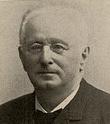Phosphorus [Phos]
GLYCOSURIA WITH PHTHISIS; urine profuse, pale, watery: or turbid, whitish, like curdled milk, with brickdust sediment and variegated cuticle on surface; gouty diathesis; cerebral disease; cheesy degeneration of lungs.
Picric-acid [Pic-ac]
Cortex of brain congested; urine contains sugar and albumen, dark red, of high specific gravity; great indifference, LACK OF WILL POWER TO DO ANYTHING; eyes feel dry, as if full of sand, sight dim and confused; saliva white, frothy and stringy; disgust for food; very great thirst for cold water; great sexual desire with emissions; excessive languor and prostration, it seemed difficult to move the limbs; feet cold, chilly, cannot get warm, followed by clammy sweat; chilly all over, except head and spine; throbbing, jerking of muscles with great pains between hips.
Plumbum [Plb]
Lowness of spirits, anguish and melancholy; diminution of sight; dryness of mouth; dry, cracked tongue; feeling of contraction and constriction in throat; fever with unquenchable thirst; dingy color of skin; gangrene; constipation, hectic fever with dry, hacking cough from suppuration of lungs; great exhaustion; impotence: excessive emaciation; great hunger; obstinate belching and vomiting. Chronic lead-poisoning produces a perfect picture of glycosuria and of morbus Brightii, and Hering considered it one of the most important drugs in this form of disease.
Podophyllum [Podo]
Chalky stools; profuse and frequent micturition immediately after drinking; excessive hepatic action; hot, sour flatus.
Ratanhia [Rat]
Considerable emaciation and weakness; limbs sore and aching; great appetite; insatiable thirst and constant dryness of the mouth; gums livid and swollen; soreness in the kidneys; severe pains in small of back, improved by motion; hard stool, with straining; frequent urging to urinate, with scanty discharge, or passes large quantities of light-colored urine.
Secale-corn [Sec]
Great general lassitude; heaviness of limbs; loss of strength; emaciation; gangrene; skin dry and withered; furuncles; petechiae; fever, with unquenchable thirst; diminished power of the senses; dryness of the mouth; morbidly great appetite; cardialgia; costiveness; diarrhoea; watery urine; increased quantity of urine.
Sizygium-jambol [Syzyg]
Diminishes the amount of urine secreted and causes sugar to disappear. No provings!
Sulphuric-acid [Sul-ac]
Lassitude; debility; despondency; dimness of mind and sight; itching over the whole body; flatulency upward and downward; stitches in hepatic region; skin completely inactive, cold and dry; large quantities of sugar in urine; typhoid condition.
Tarentula [Tarent]
Profound grief and anxiety; great prostration, and pain as if the whole body were bruised; loss of memory and dimness of sight; constant craving for raw articles; intense thirst; lips and mouth so dry that he wants to moisten them with his tongue; insatiable appetite; disgust for meat and general wasting away; constipation; polyuria, with violent pains in the lumbar region and paralysis of the lower extremities; miliary eruptions and furuncles.
Terebinthina [Ter]
Inability to concentrate the mind; dull, languid mind, relieved by frequent micturition; despondency; wearied of life; obscuration of sight; sunken features; lips cracked and slightly bleeding; epistaxis; spongy gums; tongue dry and red; foul breath; hunger and thirst, with debility; aversion to meat; rancid or acrid eructations; burning in stomach and hypochondria; tympanitis; albuminuria, with frequent micturition; SUGAR IS NOTICED IN URINE AFTER LARGE DOSES OF OL. TEREB.
Thuja [Thuj]
Glycosuria after a long-suppressed gonorrhoea, frequent desire to urinate day and night; craving alternates with want of appetite; longs for cold food and drink; urine contains sugar, foams, deposits a brown mucus; debility (<) mornings.
Uranium-nitrate [Uran-n]
DEFECTS OF DIGESTION AND ASSIMILATION; HEPATOGENIC DIABETES. CAUSES SUGAR TO BE DEPOSITED IN THE URINE. General languor; debility; cold feeling; vertigo; purulent discharges from eyelids and nostrils, with ulceration of cheeks from the acrid discharge; copious salivation; vomiting, with great thirst; putrid eructations; urgent desire to evacuate bladder and rectum; frequent micturition; cough, with purulent discharge from nostril; lung infiltrated with gray tubercles; stiffness in loins; languor on rising from bed, with fishy smell of urine; prostration, somnolence, and shivering during the day; restless at night.


